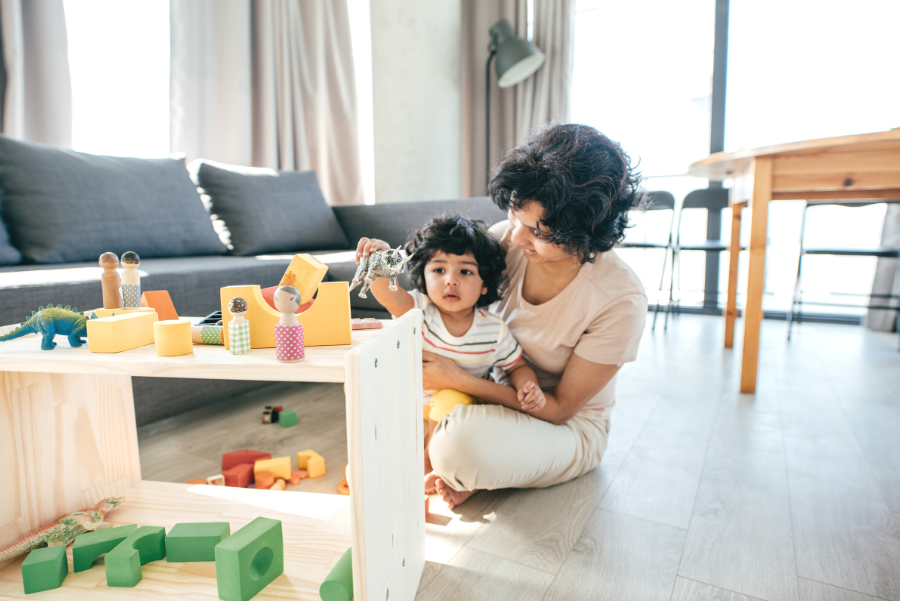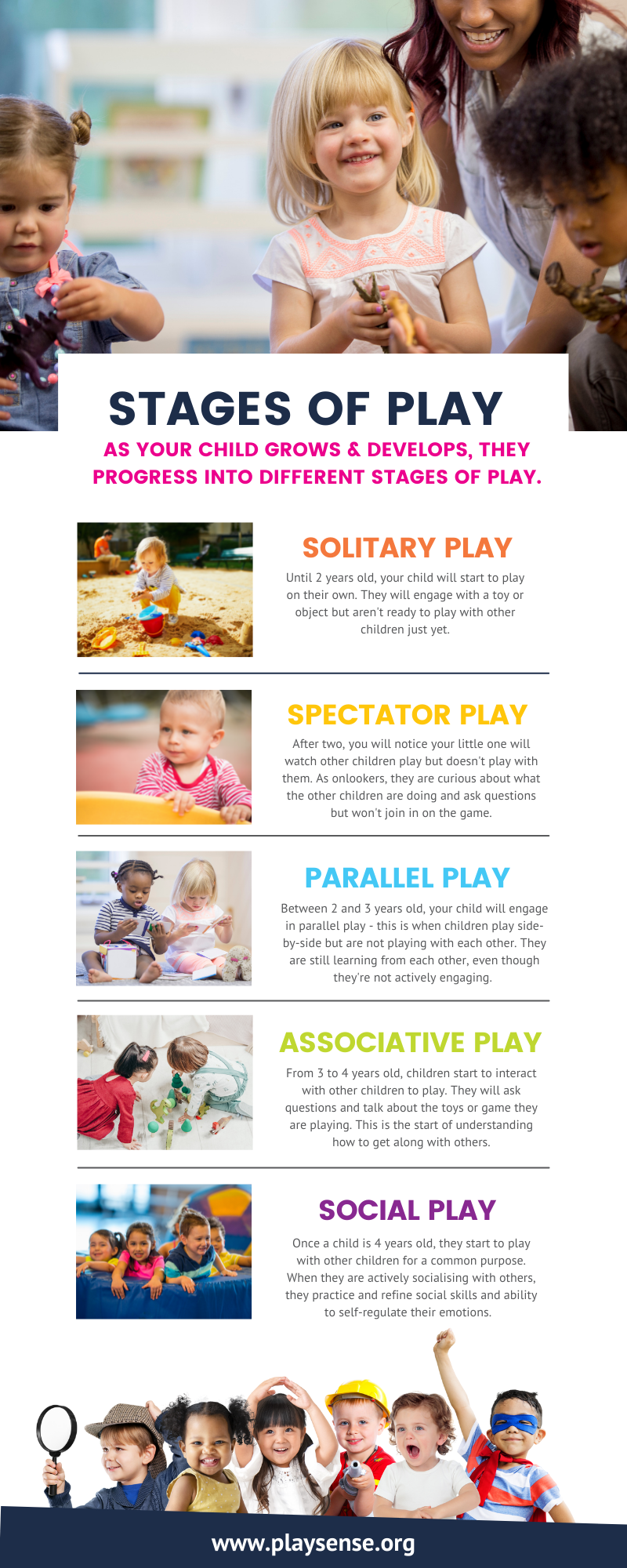
A Parent’s Guide to Play Time
At Play Sense, we have a play-based learning program to suit every family. Enrol your little one and give them the best start to learning. Get in touch to find out more.

You have probably already heard the saying ‘play is a child’s work’ – it’s a well-known quote that reminds us how important play is to children. It’s what they are designed to do and as we always say, it’s how they learn, explore and discover the world inside and outside of them.
Fortunately, children are wired to play, and they will move through different stages of play as a natural progression of their development. But along with the stages of play, there are also a few different types of play that are important, namely free play, directed play and guided play.
Free play is exactly what it sounds like. A child is free to choose what to play and how. You will have noticed that your little one will instinctively choose a toy or a ‘game’ to play without any direction or input from you as a parent.
Directed play is characterised as play that has a goal or a specific outcome – like building a puzzle for example. But somewhere between is Guided play – this is where you come alongside your little one and become a co-player with them. Imaginary play where you join in on the imagined scenario is a great example of guided play.
Children need time to engage in all three types of play so as a parent, what can you do to ensure that your little one is getting an opportunity to engage in all three types of play.
- Don’t overschedule your little one. Between 2 and 4 years old your child should have very few extra mural activities – play should make up most of their lives. If they show signs of overscheduling (resistance to activities, tiredness or crankiness or reluctance to join in a scheduled activity) or if you feel stressed by their schedule, then you know that whatever they are doing is not real play. Be sure to leave plenty of time for play in place of dancing, swimming, sport, and other ‘formal’ extra activities.
- Always remember to focus on the process, not the product. You’ll be forgiven for wanting the directed play activity you chose to look like the arts & crafts on Pinterest but that is not the goal with play. If you’re painting with your little one, allow room for exploration and focus on enjoying the time together over having a perfect end product.
- Imaginary play should make up a good chunk of their play time because it is the way they learn all the core capacities they need for life. Imaginary or pretend play captivates your little one’s mind and when that happens, learning becomes a natural by-product of having fun. Think about when your little one is dressed up as a princess or a pirate – they want to know that a crown is called a crown or that we call a sword. This is where they learn language and when they are enjoying themselves – they want the game to continue and therefore will be more amiable to taking turns with the crown/sword or directing the story. These are all shoots of core capacities like executive function, social skills, and self-regulation. So, make imaginary play a part of your everyday to give your little one the opportunities to develop and flourish.
Just by applying these 3 principles, you will be doing your little one a world of good and ensuring that they have the time, space, and freedom to carrying out their work!
For more useful tips and insights into how to play with your toddler, watch our Parent Play Date where Lara and I share practical advice for making play time fun & easy for moms and dads, too.
Imaginary play is all-important at Play Sense and our play-based curriculum is specifically designed to develop core capacities, as well as language, emotional and social skills. Get in touch for more information about joining a Play Sense micro-playschool near you today.
Leave a Reply
You must be logged in to post a comment.